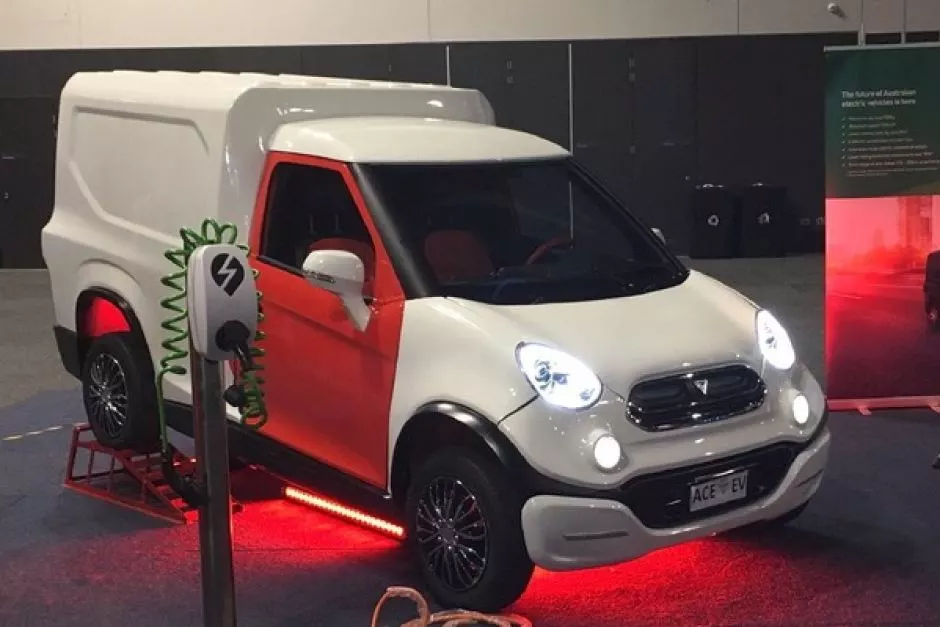Compact and humble, the first of Australia's Ace EVs rolled out to meet the media this morning in South Australia. With a range of around 200 km (124 miles) and a carrying capacity of 500 kg (1,100 lb), the Ace Cargo is a simple, practical delivery vehicle its creators hope will hit the sweet spot early.
Delivery vehicles are a perfect target for EV manufacturers, as they do a lot of urban miles, and buyers can quickly reap back the higher purchase prices in lower fuel and maintenance costs.
There's little to excite a petrolhead about the Ace Cargo – its small electric motor delivers a continuous 18 kW (24 hp), and can burst up to just 45 kW (60 hp), offering a maximum torque of 174 Nm (128 lb-ft) and a top speed of just 100 km/h (62 mph). It'll take seven seconds just to get to 50 km/h (31 mph) and if it's carrying a max load the steepest it can handle is a 20-percent slope before it runs out of chug.
Its battery pack, full of lithium nickel cobalt manganese 18650 laptop cells, holds just 23.2 kWh of energy, for a range around 150-200 km (93-124 mi) per charge depending on load and driving style.

These are not barnstorming figures, but they don't have to be in order to make the Cargo a practical and rational choice, as long as Ace gets one other figure right: the price. There's no official word on that as yet, but Ace tells us it's "target pricing" is between AU$40,000-48,000 (US$27,000-32,500).
Pitched against something like the Volkswagen Caddy, another small delivery runabout that starts around AU$25,000 (US$17,000), there's still a price premium that can't be ignored, but Ace estimates your running costs per mile will drop by up to 85 percent, so there's a chance to catch up over a few years, and you'll also be reducing your fleet emissions by more than 70 percent, depending on what kind of energy you charge it on.
The company also has a "Yute" pickup and an "Urban" hatchback in the pipeline, and while the carbon composite chassis is currently sourced from China, Ace EV CEO Greg McGarvie says his ambition is to "work at it until at least 50 per cent of the car comes from South Australia" and be producing 15,000 Ace vehicles a year by 2025.
Source: Ace EV






